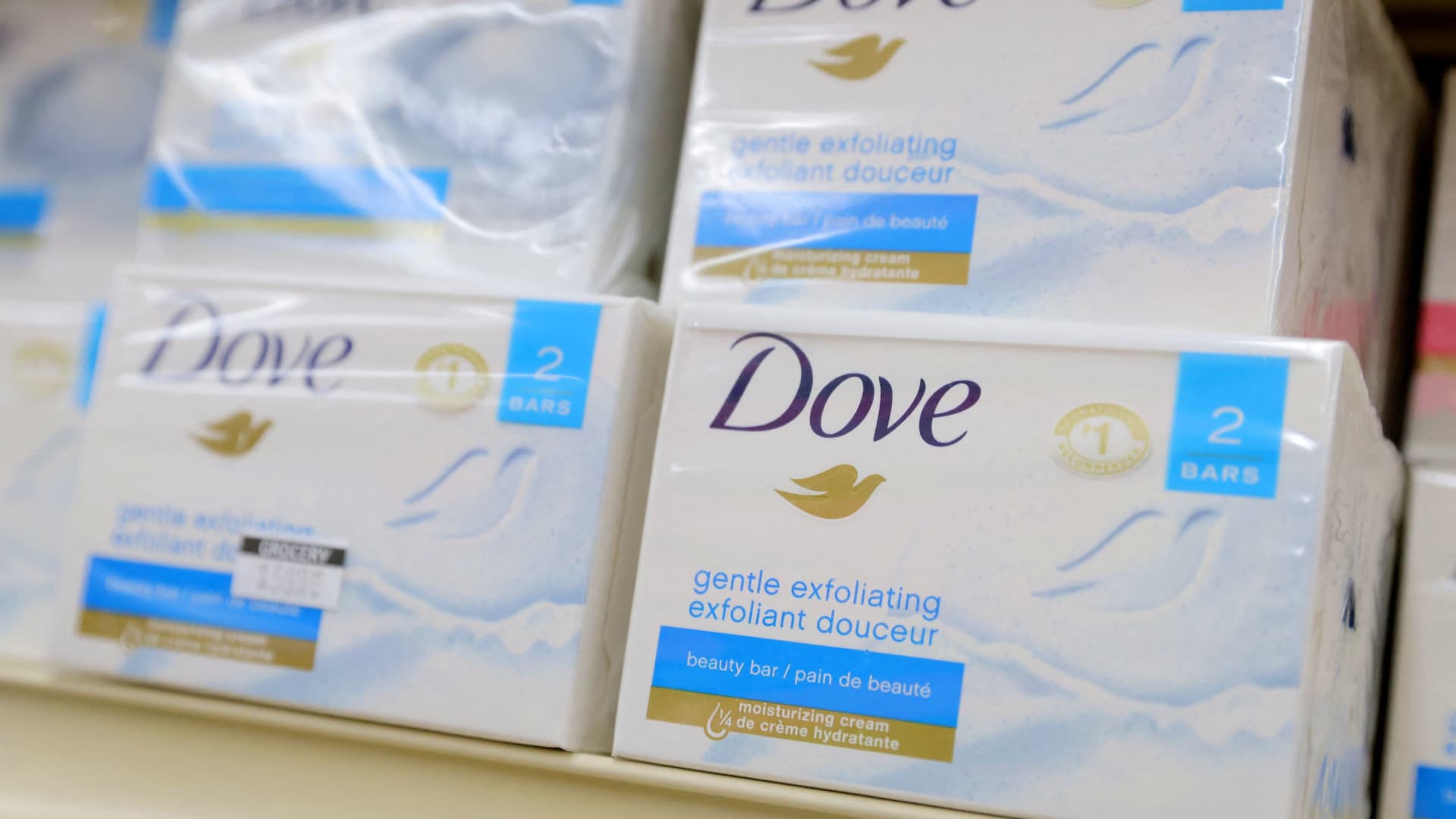
Unilever beat first-quarter sales forecasts as the maker of Dove soap and Ben & Jerry’s ice cream hiked prices by over 8% to offset higher supply chain and energy costs, more than outweighing a dip in sales volumes.
Consumer goods makers around the world have been raising prices to make up for soaring energy, commodities, labor and transportation costs, with the Ukraine conflict exacerbating inflationary pressures already building in the recovery from the Covid-19 pandemic.
Unilever warned on Thursday it expected to raise prices further, increasing its forecast for cost inflation in the second half of the year to 2.7 billion euros ($2.8 billion) due to “the outbreak of war in Ukraine and the related increase in raw material inflation.” The company had previously forecast 1.5 billion euros of cost inflation in the second half.
“Their (full-year) costs are going to quadruple versus a year ago. That’s why the pricing needs to be so high, and that’s why the price is gonna go much higher,” Barclays analyst Warren Ackerman said. “This is not the peak.”
The company hiked prices the most in Latin America – by 16.4% – and emerging markets, followed by North America, where prices increased by 8.5%.
It now expects full-year underlying sales growth to be towards the top end of its 4.5-6.5% guidance range, but the full-year underlying operating margin towards the bottom end of its 16-17% range.
Rivals Procter & Gamble (P&G) and Nestle have also reported strong sales growth in recent days after lifting prices, but some analysts are concerned consumers may increasingly switch to cheaper own-brand products as their incomes are squeezed.
Dove, a brand of Unilever, is seen on display in a store in New York, March 24, 2022.
Andrew Kelly | Reuters
Unilever’s first-quarter underlying sales rose 7.3%, beating analysts’ average forecast of 4.4% in a company-supplied poll.
The company raised prices by 8.3% but its sales volumes fell by 1%, dragged down by its home care business, which makes Comfort fabric softener and Cif disinfectants. Analysts had expected a 6.3% rise in prices and a 1.7% decline in volumes.
P&G’s volume increased 3% in the most recent quarter. “What you’re seeing in terms of the competitor dynamics around volume are the differences in the category portfolio of products that we sell,” Unilever’s Chief Financial Officer Graeme Pitkethly said on a call with journalists.
Unilever is particularly exposed to current price pressures. P&G’s products aren’t edible, while Unilever is affected by surging prices of soybean oil, grains and other foods used in products from Hellmann’s ketchup to Knorr stock cubes.
Though Nestle has also had to raise prices to make up for higher food costs, Unilever is more reliant on emerging markets, where inflationary pressures are strongest.
“The worry is what will happen to volumes when pricing goes up more?” Barclays’ Ackerman said.
Unilever shares were up about 1% in early trade. The stock has declined about 9% this year, during which Unilever has faced criticism from some investors for focusing too much on sustainability, embarked on a reshaping of its business, and failed to clinch a 50 billion pound deal for GSK’s consumer health business.




